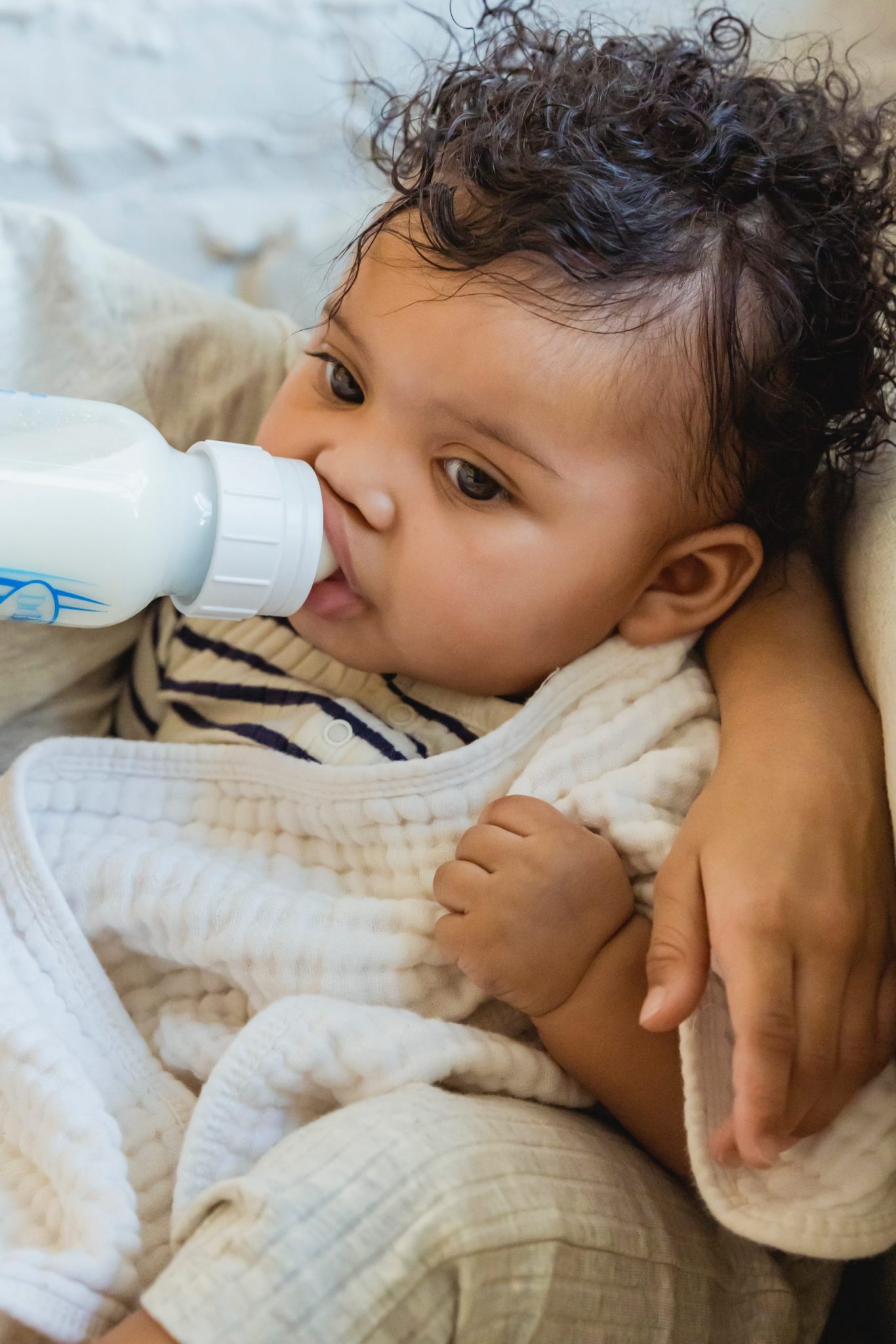The age-old debate of breastfeeding vs bottle feeding seems to never fade. This has remained a heated topic of discussion and appears to be here to stay. For the most part, parents primarily choose to breastfeed. While breastfeeding has significantly more benefits for infants and mothers alike, there can be several reasons why mothers cannot breastfeed.
There are many instances when mothers are incapable of breastfeeding for medical reasons. However, even in the event of a lack of medical reasons, mothers still have the freedom to choose not to breastfeed. Unfortunately, this is generally frowned upon by others.
Is it better to breastfeed or formula bottle feed? Ultimately, it is your choice to make, mama! The only thing that matters is that you are aware of the pros and cons of both breastfeeding and bottle feeding. So let’s get right to it!
Bottle Feeding
When the term “bottle feeding” is used, the common perception is to assume that mothers are using formula. That is not entirely the case. Often, mothers express breastmilk and store it to feed their infant(s) later. This is usually the case when mothers have to travel or spend time away from their children. In this case, bottle feeding breastmilk has about the same nutritional benefits for the child.
Another type of bottle feeding is carried out through the use of formula. In this article, we will be discussing the differences between breastfeeding and formula bottle feeding.
Breastfeeding
According to the American Academy of Pediatrics (AAP), breastmilk is essential for babies, particularly within the first 6 months. During these first 6 months, AAP recommends that infants are exclusively breastfed. With breastmilk coined as “nature’s perfect food”, it is beneficial for children to breastfeed for at least the first year of their life.
Breastfeeding vs Bottle Feeding
Now to weigh the pros and cons of both breastfeeding and bottle feeding, there are quite some factors to consider. Mother-child bonding is one of the many leading factors behind why breastfeeding is so important. The release of oxytocin in mothers during breastfeeding as well as skin-to-skin contact is incredibly necessary for both mothers and children. The fact that breastmilk is always at the right temperature and does not require prior prepping is also a huge bonus.
Pros of Breastfeeding
- Helps improve bonding between mothers and children
- Lowers the risk of sudden infant death syndrome (SIDs)
- Reduces risk of diseases in children such as asthma, obesity, diabetes, leukemia, Hodgkin’s, lymphoma and numerous allergies even during later years
- More easily digestible than formula and hence, reduces constipation and gas in infants
- Provides natural antibodies that help infants fight diseases and infections
- Contains the right amount of nutrients including proteins, carbohydrates, fats, and calcium
- Increases levels of intelligence in infants
- Contributes to higher levels of cognitive function
- Reduces risk of diabetes, breast cancer, heart disease, ovarian cancer, osteoporosis, and postpartum depression in mothers
- Free of cost
Cons of Breastfeeding
- Requires pumping if feeding is missed or mother cannot feed right away (engorgement)
- Uncomfortable during early days and painful when infant starts teething
- Can be interrupted due to certain medications or lifestyle choices
- Increased risk of passing certain viruses to the baby (e.g. HIV)
- Requires mothers to pay greater attention to their diet
- Plugged milk ducts and chances of insufficient milk for infant
With these advantages and disadvantages in mind, it can be easier for mothers to decide whether they want to breastfeed or not. Now, let’s have a look at the pros and cons of formula bottle feeding.
Pros of Bottle Feeding
- Allows for added convenience as anyone can feed the baby at any time
- Allows for flexibility as mothers do not need to fit their schedule around feedings
- Gives mothers dietary freedom
- Grants partners the ability to share feedings with each other
- Nutritional content is adjustable
Cons of Bottle Feeding
- Takes time for baby to adjust to it (might require experimenting until you find a formula that fits your baby)
- Formula does not contain immunoglobins and hence does not contribute to passive immunity
- Requires preparation
- Requires temperature adjustment
- Not as easily absorbed as breastmilk and can be hard to digest
- Parents must always carry feeding paraphernalia (i.e. bottles, formula, nipples etc.)
- Costly and requires an additional budget
Picking between breastfeeding and bottle feeding can be a tricky choice to make. It is a choice that only you, as a mother, can and should make. It is also a choice that is best made once your baby arrives. If you are indecisive about which route to choose and need help making the right decision, you can always seek the advice of a lactation consultant. Not only are they professionals, but they are also equipped with all of the right information.
Making the decision between breastfeeding and bottle feeding is ultimately a mother’s personal choice. At the end of the day, what matters is that the decision she takes is one that is well informed. After all as a parent, you know your baby the best. Hence, you get to make the decision of whether you wish to breastfeed or bottlefeed.
Do you prefer to breastfeed or bottlefeed? Let us know in the comments below.










